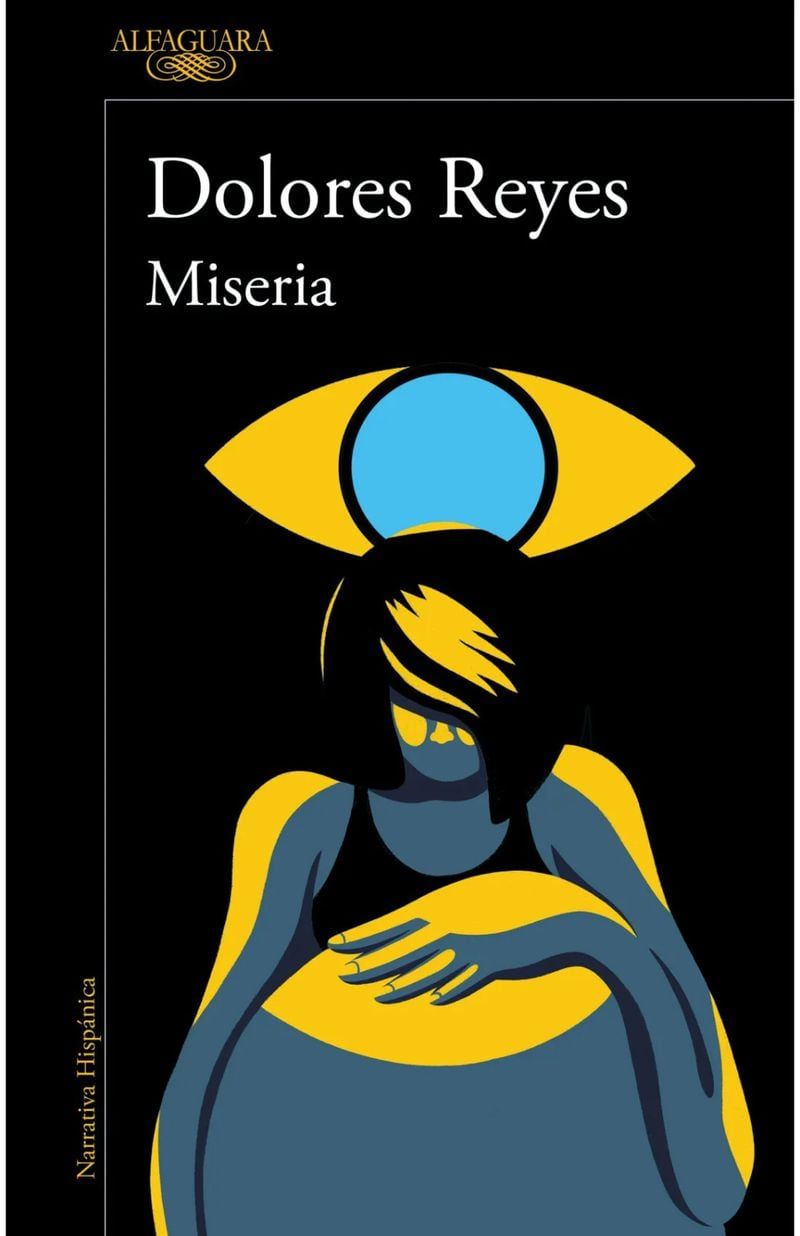What of Dolores Reyes (46) was the kid’s dream. After publishing his first novel, Eat dirt, In 2019, by the small independent trans-Andean publishing house Sigilo, a publishing phenomenon was suddenly created around it. The book sold 50,000 copies in Argentina alone, it was translated into 15 languages, and their rights were even sold to a series produced by Amazon Prime Video. That is to say, unprecedented success for a debut. This is how this story, very unusual in Latin American literature, began to be talked about. A young woman – Earth Eater – has psychic powers and can find missing people – especially women – by eating dirt that has been in contact with them.
Then came the continuation of the story, Misery (2023) this time published by Alfaguara, where Cometierra appears again, now accompanied by her sister-in-law, Miseria, a pregnant teenager with whom she addresses topics such as popular knowledge or gender violence. Like the first, it also had high interest and will soon have translations in Norway and Russia.
This is the novel that Reyes – a native of Buenos Aires – came to present at the last Penguin Providencia Festival, and that had her signing copies for the readers who came in large numbers to see it. And on an autumn afternoon in Santiago, she receives Worship. He confesses how he has experienced having a recognition that – he assures – he never expected or sought.
“In everyday life I try to change as little as possible even if it costs me. Continue, try to resume routines. In fact, when I go home I am in parenting and family mode, like in mother mode and I forget all about this, about the maelstrom to come to present a book. But yes, a lot of things changed: recognition, readers. Many people who look for you, tell you, describe their experience to you. Now there is the Buenos Aires Book Fair and there is a whole intensity of tables and debates, and that also changes the routine. But I try to stay as attached as possible to that calmer time and a much calmer speed, because it helps me write.”
Eat dirt It is going to be carried as a series by Amazon Prime…
On the one hand I love it, on the other hand it scares me, it overwhelms me. It seems to me that she already has a life of her own, right? It’s crazy. Obviously everyone asks me, and did you expect this to happen with your first novel? No, of course not, who would expect something like that? I don’t expect anything more and it continues to surprise me.
As in your first novel, in Misery You also approach women who have disappeared. How do you choose your topics?
I don’t know if I chose the topic too much, I feel like it was a topic that was imposed on me. I began to accompany characters who are very young, especially in Misery which is a two-voice novel between Misery and Cometierra. One is a 16-year-old girl and the other is 19 and they are setting up their home for the first time and it is inevitable that going to the periphery of the big city they will collide with the enormous cost that life has for women. The crowds, migration, precariousness, first jobs, economic and labor exploitation. It was impossible for them not to encounter that. So, from there I was choosing the voices and the characters and the locations, I am going to encounter certain problems.
When seeing Dolores, it is striking that she has the illustrations that appear on the covers of her books tattooed on her forearms. “Cometierra is a character that I feel will accompany me throughout my life. And also the drawing is so beautiful, they made it almost as if she were a saint. It happens to me a lot on airplanes, in some places, even in the supermarket, they tell me: ‘Oh, Cometierra!’ As if I were more or less the same. Then the same thing happened to me with Miseria.” I feel that they are very strong characters who will always accompany me and it was like taking charge of that too.”
In your books there is a concept of the south. Do you position yourself from there to write and narrate?
Yes, there is a concept of the south that seems to me to be never central. I feel that it is in the peripheries where, on the one hand, all the intersecting violence and gender violence, of course, have the most impact. And on the other hand there is also something with language that is very creative, very permeable to changes. The guys who make urban music use the language with a freedom that interests me a lot when composing the voices of the characters. I am interested in narrating from that location and with those voices.
I read in an interview that you said that people asked you to give them the contact information for Cometierra. Does it still happen to you?
(Laughs) Yes, it happens to me. That is terrible, because each of those people who write to me asking for contact with the psychic has a story behind them. Of a sister they haven’t seen for more than 20 years, of a missing daughter, of a missing mother, an aunt, a grandmother. So, it could be that (Cometierra) embodies the character in such a way that they think he is based on a real person and ask me for that contact. They even ask me if it’s me. I found it so funny at first because they asked me: “Do you still have the gift?” And I was very energetic, very lyrical, I thought “could it be the gift of writing?” and my friends tell me: “But, no, silly, they are asking you if you have the gift of guessing by eating dirt.” It’s fiction. These people come from desperation, from the hopelessness that no one is going to give them that answer.

In another area, what do you think of Javier Milei’s government and specifically in the field of culture?
It’s awful. It is defunding public education and particularly universities across the country. I cannot imagine an Argentina without the public university. I am a daughter of public education and I cannot imagine an Argentina like this, so sad, without cinema, without culture, without books, without education, without health. That’s what he’s proposing, right? Everything that is not profit, free market, is not interesting and we are defending something that takes decades to build and in the case of education not to mention. The UBA is in danger of closing because it cannot even pay for electricity in a couple of months. Let’s see what happens, but I also like that large sectors of Argentine citizens are beginning to express discontent and that they are not going to allow this annihilation of culture and education.
What do you think of Artificial Intelligence?
My technology is the book, I don’t know what to answer you. So, I hardly connect with Artificial Intelligence despite the fact that everyone tells me: “No, but it is inevitable and in a few years, everything will be artificial intelligence.” I continue to live in parallel without any direct connection with AI. I’m very anachronistic in that sense, I don’t even change cell phones often, I even buy vinyl. The technology that I love and love is books.







